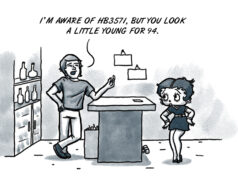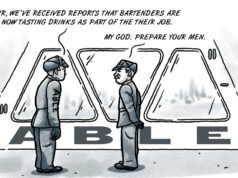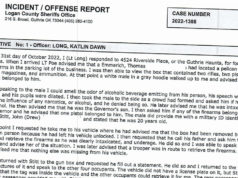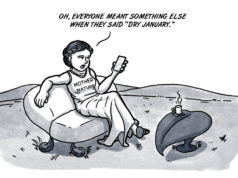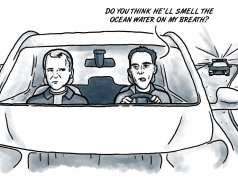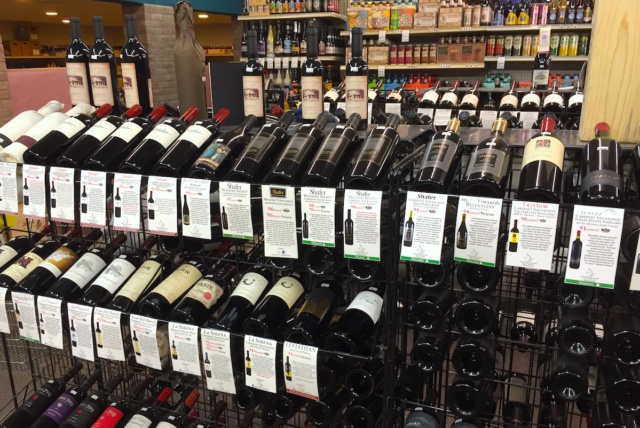

(Editor’s note: This week, NonDoc has published pieces examining the seven state questions on this November’s Oklahoma ballot. We have already published on SQ 776, SQ 779, SQ 780 & 781 and SQ 790. The pieces are presented in a “filter” format that attempts to answer key questions about the measures and any campaigns being run for or against them. The Yes for 792 campaign is actively advertising on NonDoc, as is the Beer Distributors of Oklahoma.)
Oklahoma has long had liquor laws that lagged behind the rest of the country, but advocates of State Question 792 say the measure will modernize the state system and spur economic development.
On the other hand, opponents say the state question benefits large corporations too greatly while hurting smaller liquor stores.
After two years of negotiating the issue, all sides proved unable to sit down over cocktails and work out their differences. However, a coalition did form to work a proposal through the Legislature toward a vote of the people. As a result, SQ 792 is on the November ballot, and a different liquor-law modernization ballot effort wound up in the recycle bin.
Background and details
From a consumer’s perspective, SQ 792’s rewrite of Article 28 of the Oklahoma Constitution will result in more convenience by:
- removing current low/high-point beer designations,
- allowing grocery stores to sell said beer and wine,
- allowing liquor stores to make up to 20 percent of their monthly sales in non-alcohol products,
- allowing any seller to refrigerate wine or beer in their store,
- and by allowing wineries better abilities to sell their product to consumers.
From a business perspective, however, the measure appears beneficial for grocery stores — local and national, such as Wal-Mart — that will be able to obtain retail wine licenses for the first time and retail beer licenses that would allow for the sale of the same beer currently available only in liquor stores.
Who is for SQ 792 and why?
Large retail stores like Wal-Mart, Reasor’s, Homeland and more stand to gain a great deal of wine and beer business if SQ 792 passes, and a list of supporters on the Yes campaign’s website notes that even 7-Eleven and QuikTrip see opportunity in the proposed constitutional changes.
That same supporters list includes numerous wineries and breweries, as well as the Beer Distributors of Oklahoma, who have advertised on NonDoc since the site’s inception.
Who is opposed to SQ 792 and why?
In opposition to SQ 792 stands primarily the group whose members would seem to have the most to lose: the Retail Liquor Association of Oklahoma. “Modernizing” Oklahoma’s liquor laws to authorize more sellers of beer and wine would undercut several enormous advantages liquor stores currently have — chiefly, a foil wrapper over the corked neck of who can sell wine and currently high-point beer.
A clunky website, 792NotForYou.com, has been established to highlight concern about the state question, though the site does not list its sponsors or funders. It offer six “myth” v. “fact” scenarios, including one that argues:
Many beer styles actually do just as well or better at temperatures other than ice-cold. Consumers in other states regularly find craft beers like Fat Tire stacked on the floor right next to the huge displays of Bud or Coors.. (sic)
The difference between ‘may’ and ‘shall’
State Capitol veterans sometimes educate newcomers on the nuance of legislative language by discussing the huge difference between the words “may” and “shall.” SQ 792 is a prime example.
In the existing Article 28 of the Oklahoma Constitution, brewers or manufacturers of alcoholic beverages “shall” sell their product to wholesalers, who in turn sell products to retail stores. But under SQ 792’s rewrite, brewers or manufacturers “may” sell to any wholesaler they want, so long as they offer the same price to each wholesaler.
The change of “shall” to “may” has angered some interest groups and is also being used by the Retail Liquor Association of Oklahoma to threaten rising booze costs if the measure passes.
In short, the new language would allow a producer of an alcohol product to sell only to one wholesaler, thus forcing any liquor store or retail store wanting to offer that product to do business with the chosen wholesaler.
While that change likely won’t be noticed by most consumers, its implications for wholesalers and retailers are big. It’s one of the reasons the RLA of Oklahoma had attempted its own initiative petition this summer before running short of time and signatures.
As with SQ 777, reports indicate that if SQ 792 passes, opponents are likely to file lawsuit to challenge it.
